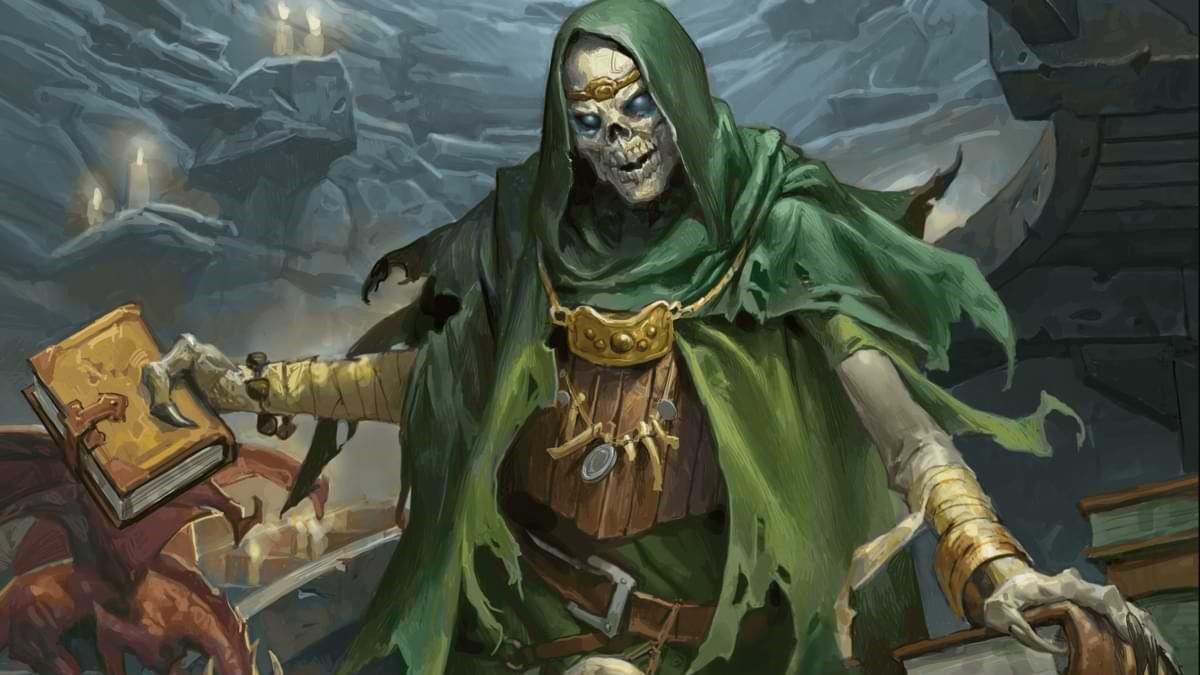D&D and other tabletop RPGs require someone to lead them—a Dungeon Master, also known as a Games Master. It can be an intimidating role to take on, but as someone who’s been regularly running campaigns for about 20 years now, trust me when I say that learning how to DM is much less difficult than it appears, and it can be a ton of fun to boot.
The first thing to know is that you don’t need to be perfect right away—or ever, really. Popular D&D shows like Critical Role can make it seem like being a good DM means giving a flawless performance, but the reality is that you can give the group a great time without having any real skill for things like storytelling or vocal performance. Play with friends or at least like-minded individuals, and you’ll find any mistakes you make are quickly glossed over, and that even the most simple and cliché adventure can be a blast.
That said, the role of Dungeon Master does require more preparation than being a player, and you will find things go a lot more smoothly if you put in some time to learn about what’s expected of the role. This guide is designed to equip you with the knowledge you need for a great first adventure—read on, and you’ll be running epic campaigns in no time.
Sounds like someones forever DM wants to play a PC.
please, ive been dming for 84 years let me see the other side before i die
I had the exact same thought reading the headline.
I can’t recommend Matt Colville highly enough if you are interested in DMing. His videos are the perfect gateway to the other side of the screen.
He makes it seem really easy, too. He’s so optimistic and encouraging.
If you’re thinking about becoming a GM, I cannot recommend enough Justin Alexander’s (of The Alexandrian fame) new book So You Want To Be a Game Master. It’s a really great step-by-step hand holding guide that we probably all wish we had growing up, or that the DMs Guide actually provided but doesn’t (yet?)
His whole website is full of practical tips for the more advanced GM as well.
An interesting book I recently picked up is about letting the players drive the narrative as much as possible. It’s important to get goals from them early on, track them, and have them updated as it goes on. That way, the DM is kinda playing reactively (within reason).
Honestly, one of the things that’s stopping me, is the lack of knowledge about the lore. Between all the worlds, timelines, deities, there’s just so much. It’s fleshed out, but very daunting.
It’s easy to get hung up on this stuff. I’m guilty of spending way too much time thinking about this kind of thing. There are so many potential nameless towns and villages that you can just make up your own without worrying too much. You can always make up your own kingdom or region without ever specifying or even mentioning what sphere, planet, plane, continent, or whatever you are on. With deities, they almost never matter unless a player is planning to lean heavily into it, and even then, you usually can skim some basic details about one or two gods and make stuff up from there.
If you read deeply into the history of the realms and their lore you will learn that it’s mostly independent nonsense. The pantheons and cosmology that the official setting uses has changed so many times that you can really just do whatever you want. There are literally worlds that are identical in every way except for a few things. They exist in the same place and time but are invisible to each other and just served as an excuse for the writers to say “it’s just like this other setting… but different.” The world your campaign takes place in can just be another one of those. A world based on the official Forgotten Realms, only in this world, the king is dead of the magic is delicious, or there’s no such thing as dragons, or gods don’t exist, or whatever.
Don’t let the existing lore stop you from telling the story you want to tell, because it never stopped any licensed content creator from doing whatever the fuck they wanted
My issue is that I just don’t care about fantasy. It’s hard to convince my fantasy DnD friends that they should let me try a homebrew Mass Effect 5e campaign even with official ruleset documentation online for it.
That and the fact that I’ve never done it before, so even if they agreed I doubt it would work out very well since I’d be new AND having to rework the system for the universe.
This is not going to sound right, and apologies if you do take it like that, but time to find some new friends. Let me explain this. If they are really friends then they shouldn’t let your concerns like that stop you. I have a couple of people I play board games with weekly (mostly online). One of them decided we should play DnD, which I had been asking to do for a long time, but they didn’t seem to have much interest, so I didn’t push. Once it came up again, the person wanting to play also wanted to DM. Now being a friend I went along with it. They are the DM, and they have never played a single game of DnD in their lives. But you know what, it all worked out and has been great. Don’t let being new and maybe having to rework something stop you, and your friends shouldn’t let that be a hindrance either.
is there really no better system for mass effect? trying to hamfist DND into it does sound pretty miserable
N7.world seems to have a pretty robust system. I’ve never heard of an alternative specifically for ME.






